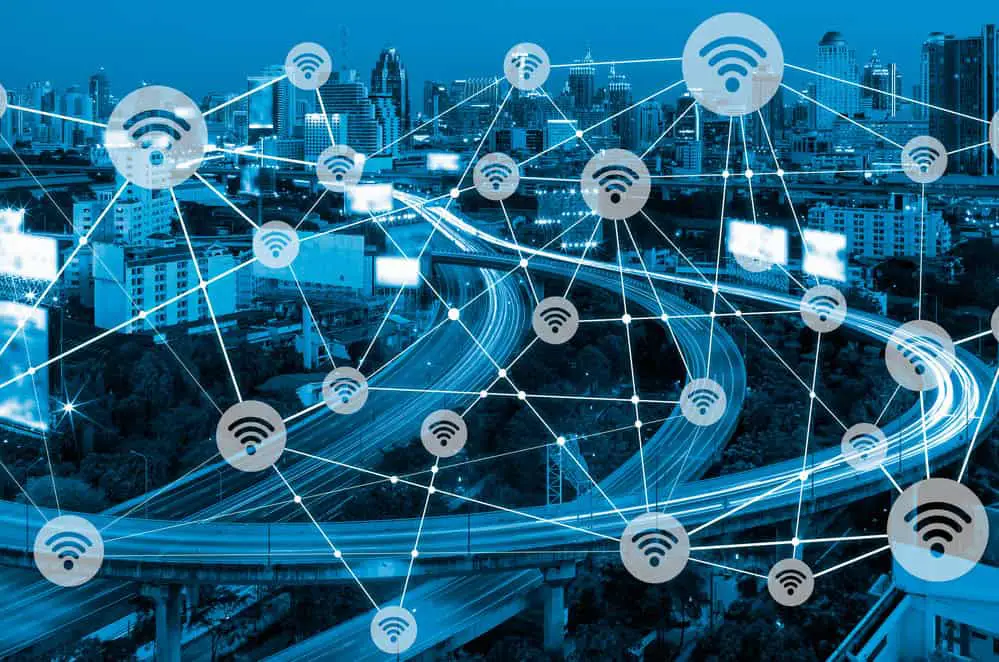5G is a fascinating topic. From bizarre, often amusing conspiracies about its origins and applications to ironic jokes and memes making fun of the controversy. 5G is the next step in wireless technology, promising faster mobile data speeds and opening avenues for newer, more affordable internet services.
What does the 5G rollout mean for the world? What changes can you expect from it? Is it worth the hype, or is it another trend, a flash in the pan? Here are answers to all these questions and more.
Table of Contents
- What Does 5G Rollout Mean, and What Can We Expect It?
- What Makes 5G Different From Other Mobile Network Generations?
- What Is 5G Capable Of
- What Are the Three Pillars of 5G
- What Are Some of the Concerns of 5G Rollout?
- What Are the Challenges Faced When Rolling Out 5G
- FAQs
- Conclusion:
What Does 5G Rollout Mean, and What Can We Expect It?
This is the big question on everyone’s mind. But what does 5G rollout mean? First, the 5G rollout doesn’t mean you’ll get instant changes in wireless internet. Instead, you’ll get a gradual increase in 5G services across the country.
For example, the 5G rollout in your country could start with telecommunications companies testing the service in metro cities. This testing continues for months before fully introducing 5G data. Remote and rural areas probably won’t get full-scale coverage until much later.

LA metro area night
What Makes 5G Different From Other Mobile Network Generations?
5G represents cutting edge of wireless networks. It differs from its predecessors, 2G, 3G, and 4G.

Wireless communication network
5G is primarily designed for data analysis, storage systems, and machine communication. This differs from earlier network generations, which aimed at connecting people with things and the internet.
What Is 5G Capable Of
5G is capable of
- Higher speeds, 5G is 20 times faster than 4G ]
- Connecting more devices without bandwidth issues
- Supporting a huge capacity for fast data
- Energy efficiency that’s 90% better than 4G
What Are the Three Pillars of 5G
Mobile 5G
Developing mobile cellular networks is the priority. That includes 5G mobiles and countrywide networks.

5G technology
Fixed Wireless
Many businesses already use fixed wireless internet. Moreover, 5G fixed wireless allows for greater primary and secondary connectivity reliability.
Edge Computing
Finally, the third pillar of the 5G rollout is edge computing, which lets businesses process high-speed, low-latency applications closer to the area where they’re used.
What Are Some of the Concerns of 5G Rollout?
Radiation and Its Effects
Some European countries introduced strict regulations on radiation. This affected and even halted 5G trials in many areas. Though the WHO stated that there’s no evidence 5G networks have adverse health effects, the stigma and misinformation surrounding this subject make it difficult to have a smooth 5G rollout.
Complex Network Infrastructure
Telecommunications companies must develop IT-related infrastructure and platforms to support the 5G rollout. This means they need knowledgeable and experienced staff. They need experts who understand the complex technology and feature-rich structure of 5G networks.

Digital image representing 5G network
It Requires Extensive Testing
As with all new technologies under development, testing 5G is an extensive and lengthy process. It’s taken place over the years with many telecoms. But in the tech world, too much is never enough. Many companies aren’t prepared to introduce the service commercially until they’ve ironed out all the kinks.
What Are the Challenges Faced When Rolling Out 5G
Expensive Process
Telecommunications companies currently invest billions of dollars in 5G infrastructure. However, it doesn’t include licensing fees, technicians’ wages, and deployment fees paid to regulators.
5G Phones Aren’t Widespread
Unfortunately, there isn’t a wide range of 5G phones on the market, and consumers don’t need to buy available models since most don’t operate in their region. Concerns about the safety of 5G radio waves and their supposed effects on the body also led to the stigma around 5G devices.

Simulated radio waves
Paperwork Takes Time to Complete
Mobile networks aren’t free. Telecoms must work with and pay fees to regulators like the FCC and international authorities, outlining which parts of the spectrum are used for mobile communications. In some cases, it can take years to finalize these agreements.
FAQs
Will 5G Work on 4G Phones
5G phones use a different type of sim card. This means you’ll have to get a 5G phone to replace your old one if you want to use 5G services.
Will 5G Replace WIFI
WIFI is so commonplace in homes, offices, airports, libraries, bars, and restaurants that it’s hard to imagine a world without it. But nothing lasts forever in the tech sector, and new advancements eventually render their predecessors obsolete. In this case, the most likely outcome is that the two networks will co-exist, complementing each other in various ways.
Will 5G Affect My Phone?
Using a 5G device, you can expect better connectivity everywhere you go, provided your location has 5G infrastructure and data. You’ll enjoy significantly more stable networks and expanded coverage capabilities.
Are 4G Phones Going to Work With the 5G Rollout?
The introduction of 5G networks doesn’t mean the end of 4G. Its infrastructure will still exist and remain functional. Therefore, your phone will still work and connect to 4G networks.
Conclusion:
It’s a topic surrounded by many myths, misinformation, and controversy. Still, hopefully, you have a better understanding of what the 5G rollout means and what you can expect in the future. Lastly, it’s an exciting thing to look forward to, with the benefits of high-speed, low-latency internet and the impact it’ll have on the market.
5G will open the doors to a new future for cellular networks, communications, and applications. People are yet to see the full potential of this network. And with more countries moving towards implementing it and telecoms investing in 5G infrastructure, those days aren’t too far off.
